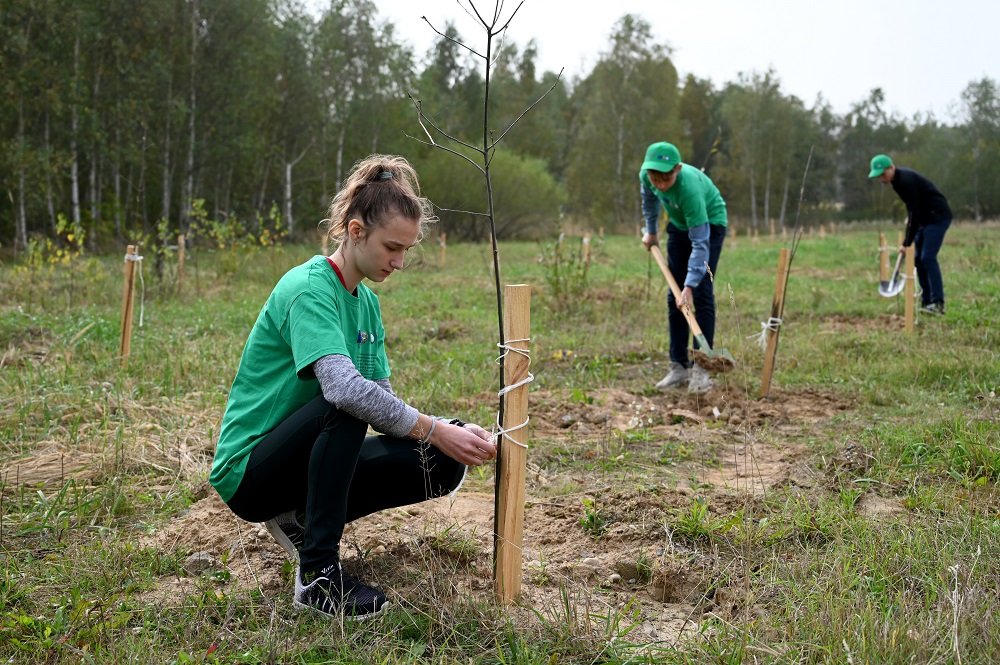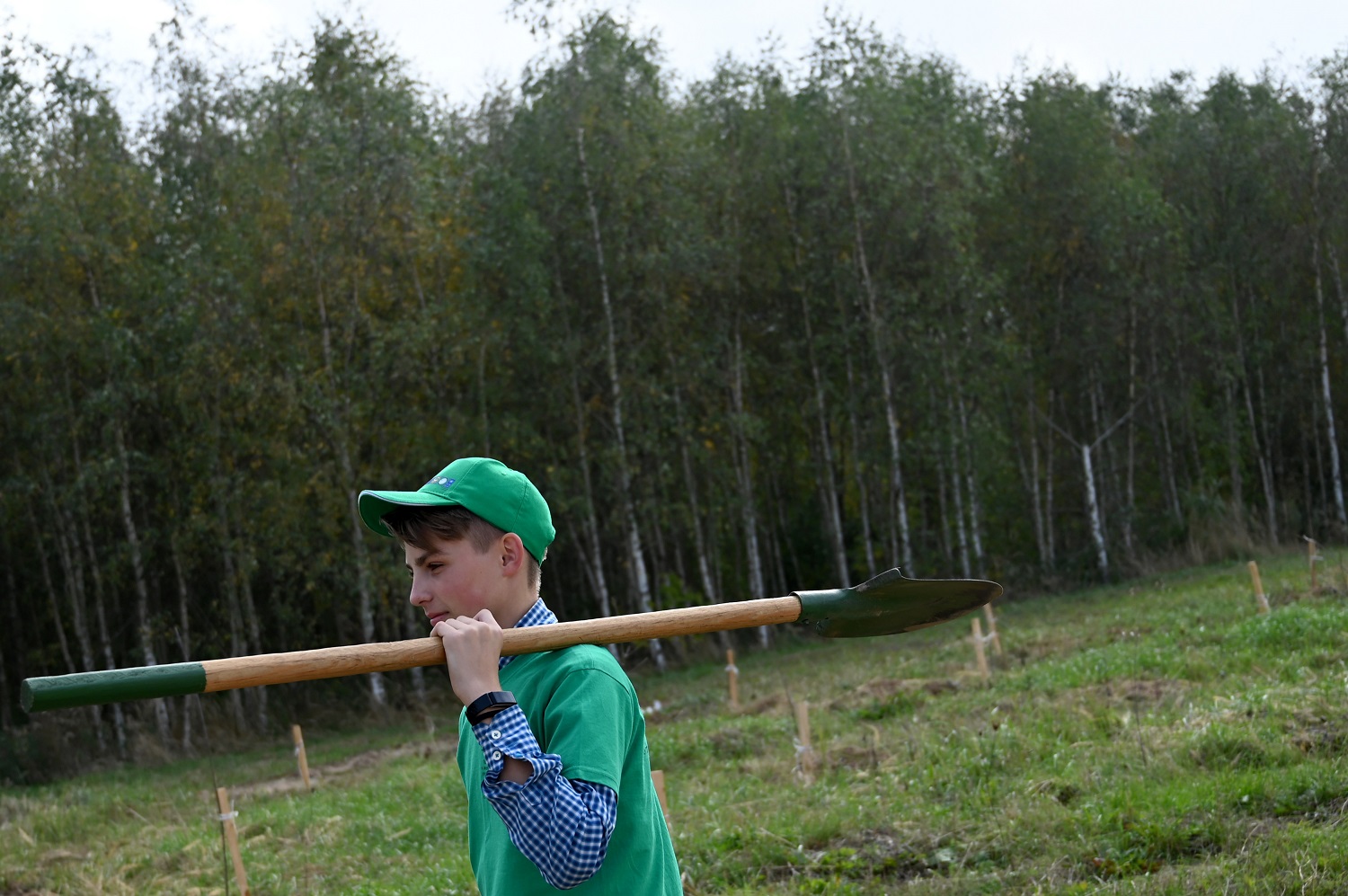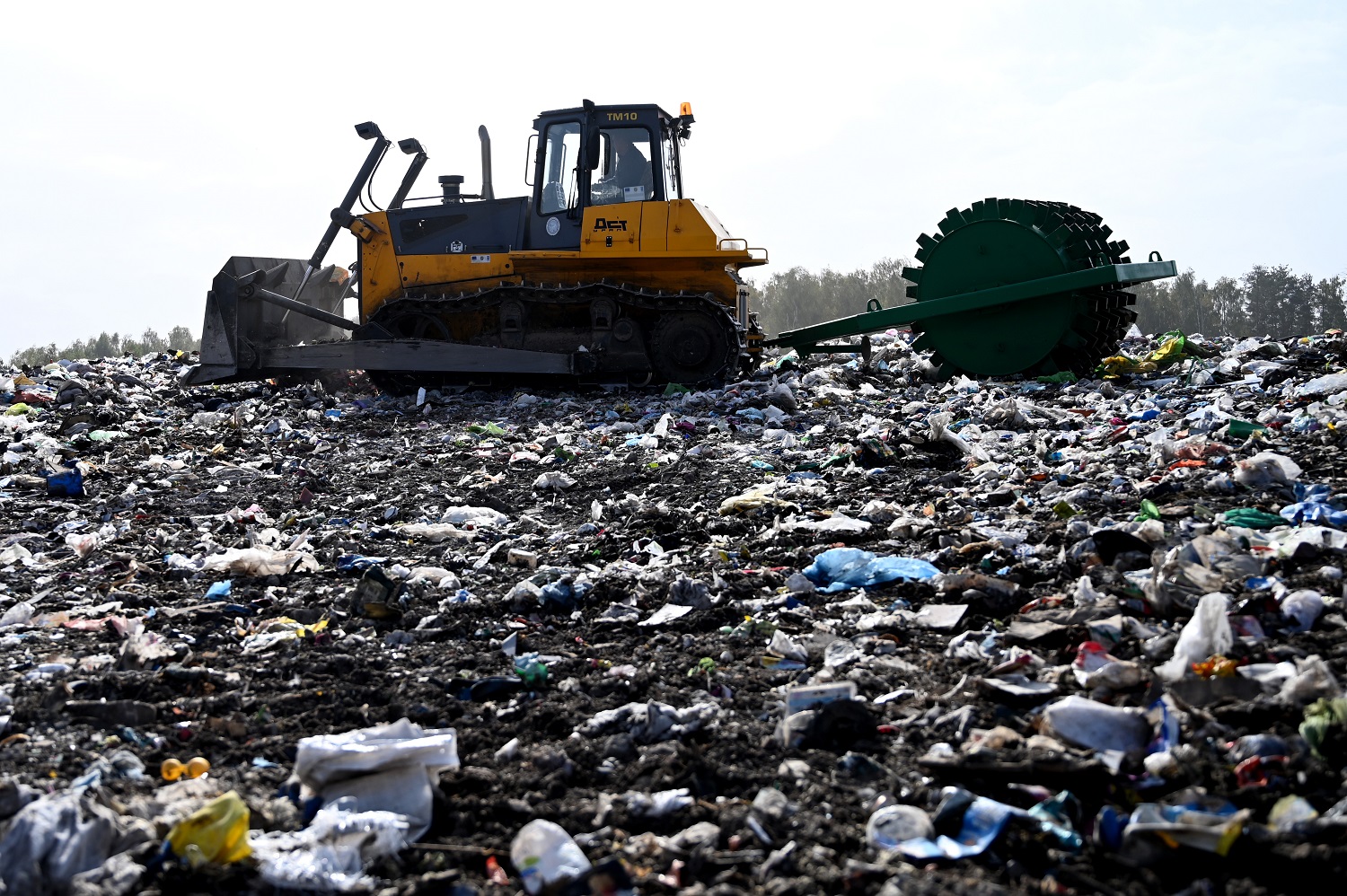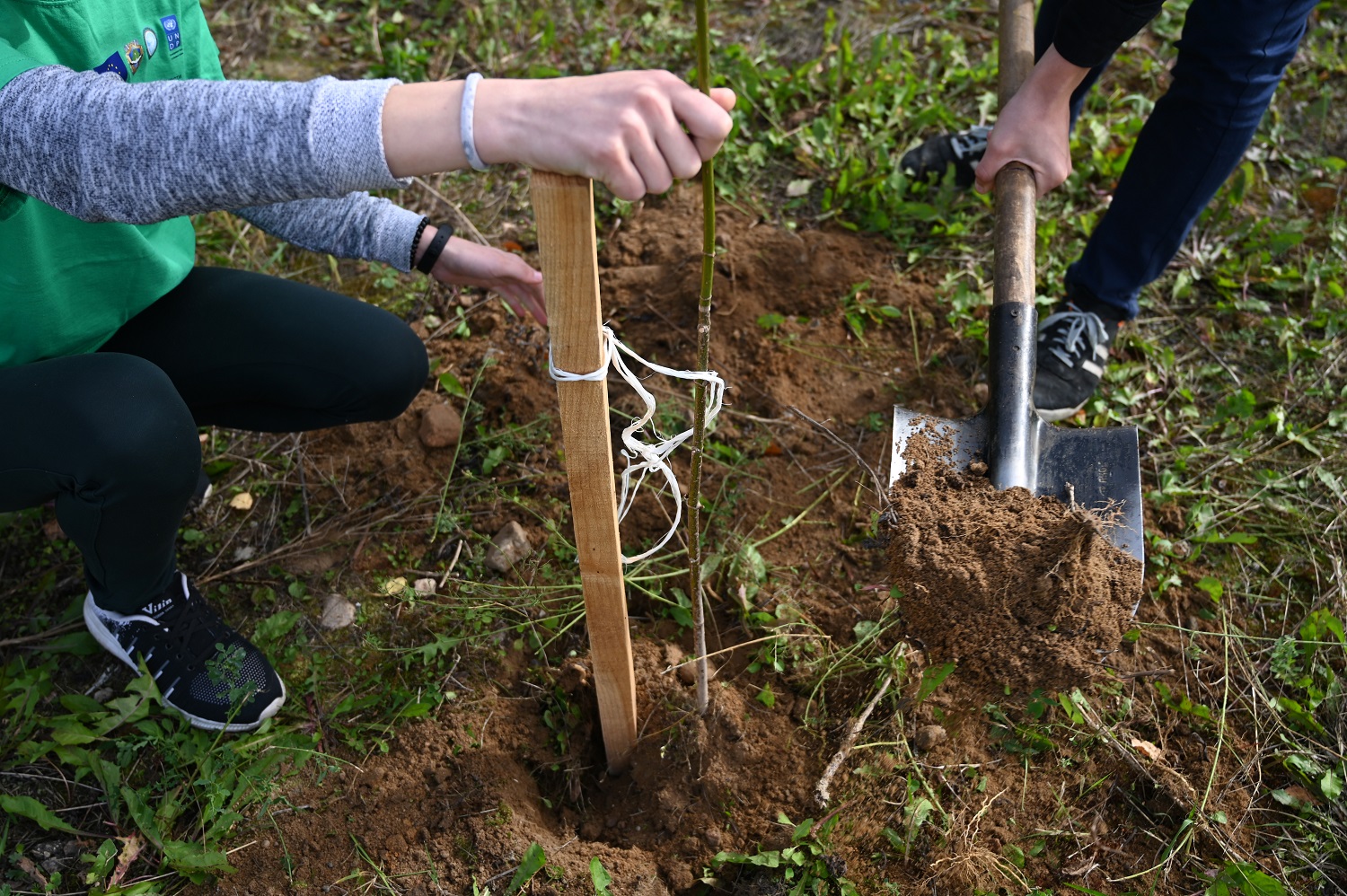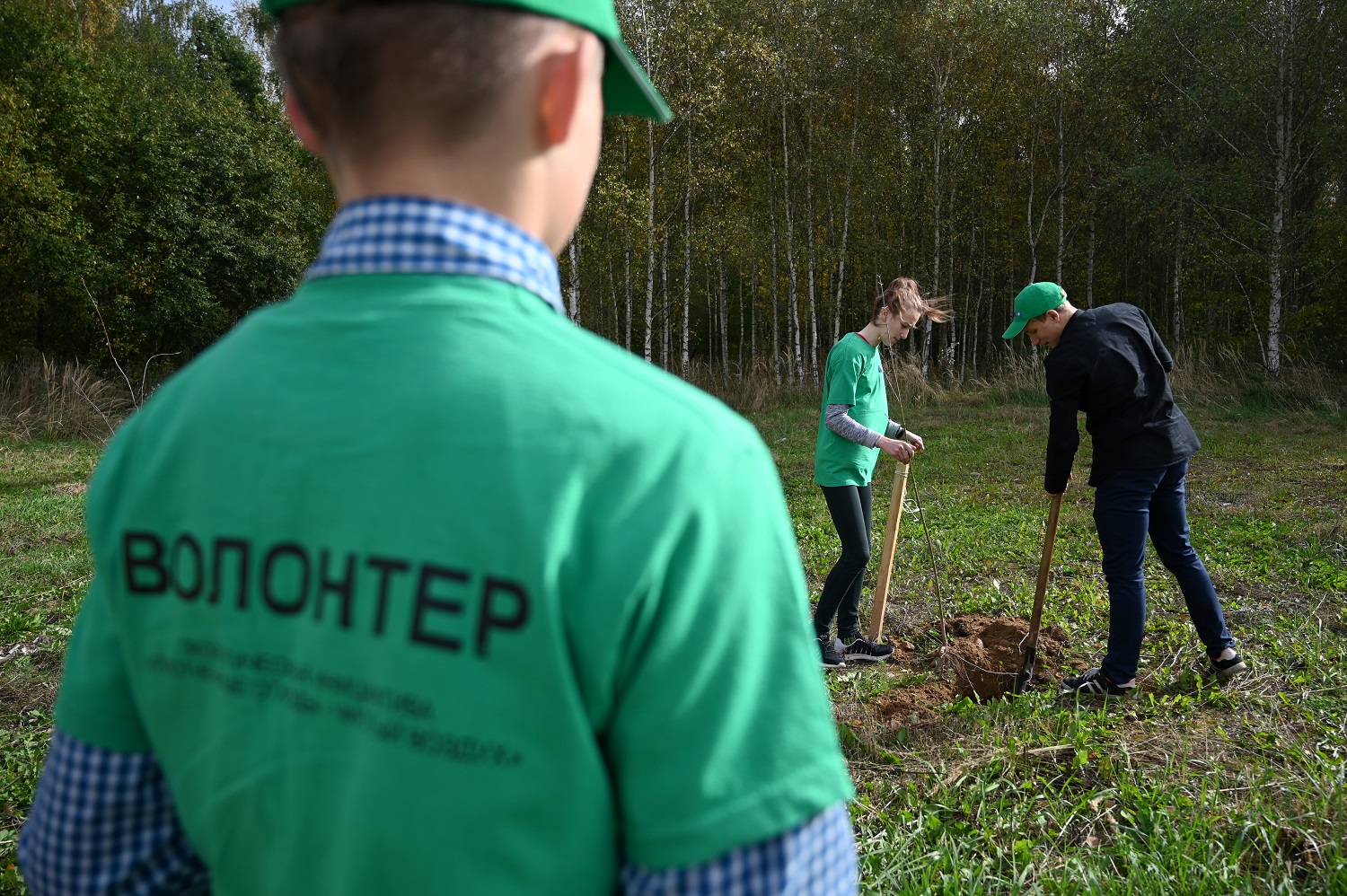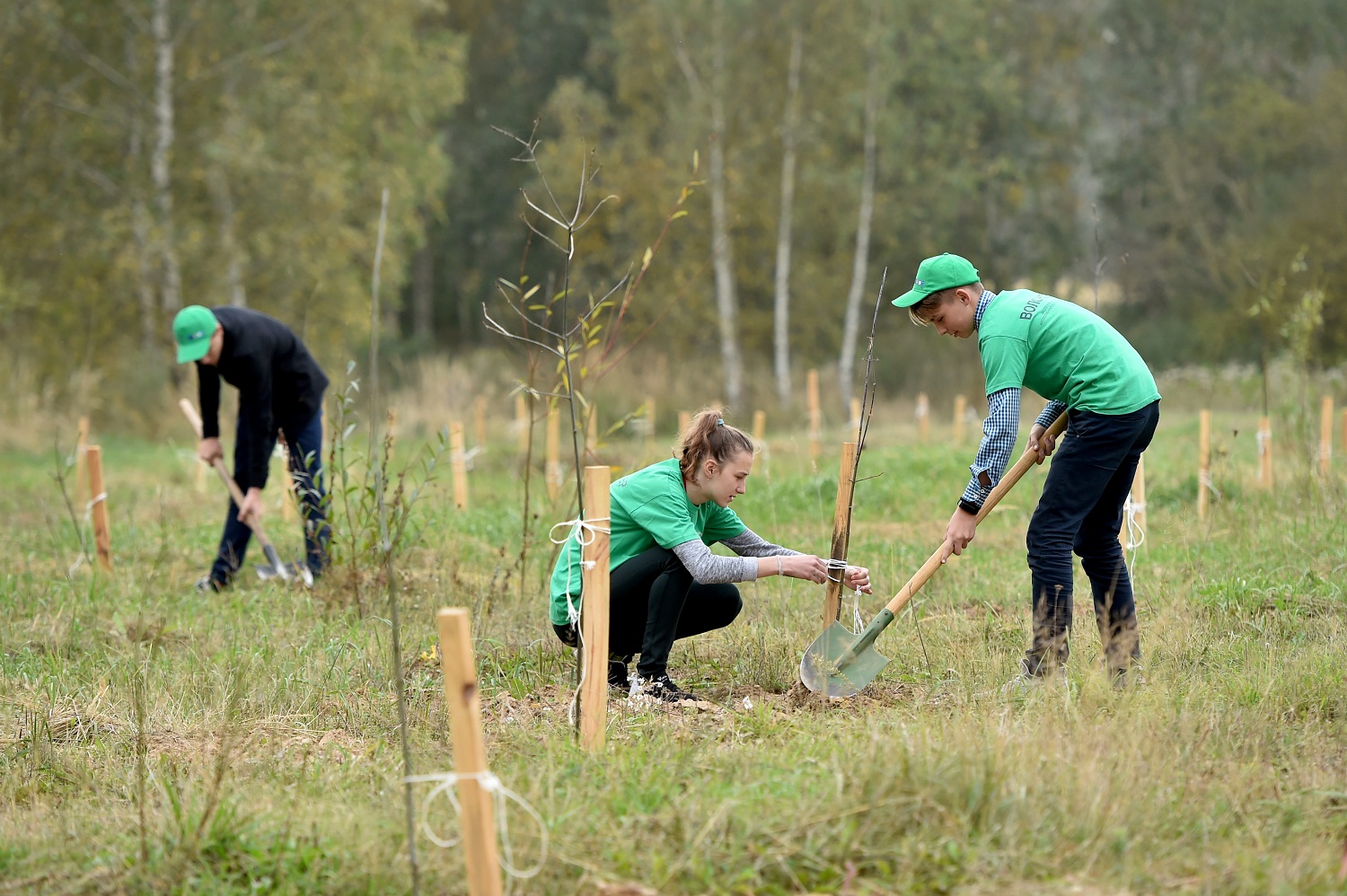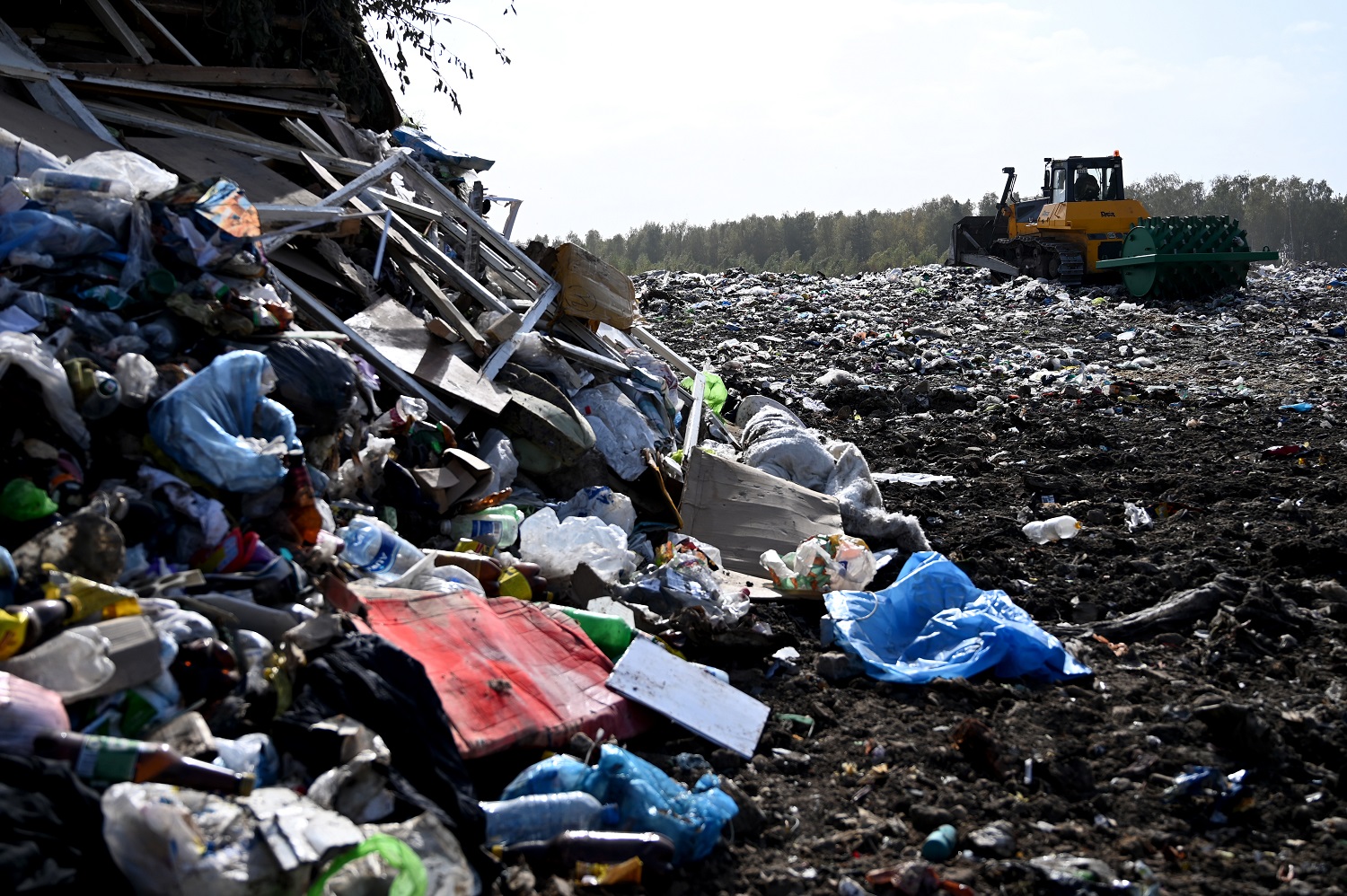Photography: Sergei Gapon for UNDP Belarus
Schoolchildren and teachers, together with employees of the Lida State Unitary Enterprise of Housing and Utilities and representatives of the ecological initiative "Compacted Waste - Clean Air" planted young oaks and hornbeams on the former landfill in the Lida District. The children indicated the numbers of their schools on the pegs propping the seedlings.
Sergei Lepesha from 8B grade of secondary school №6 in Lida explained why it was important to leave a commemorative mark: “I really enjoyed planting trees at the landfill. I believe that it will arouse the interest of other residents of the city. After all, trees purify the air, and it is not enough clean air in our gas-polluted cities."
The Guda landfill was closed 4 years ago, as it exhausted its resources. After reclamation (soil recovery), the first trees were planted here. And this year, another 300 trees have replenished the plantations within the framework of the ecological initiative "Compacted Waste - Clean Air", led by the Grodno regional branch of the "Belarusian Peace Fund" with the support of the European Union and UNDP. And now, where mountains of garbage were used to be, a deciduous forest is growing.
The ecological initiative “Compacted Waste - Clean Air” brought together very different educational institutions and organizations, including the Lida regional center of tourism and local history for students, the Sunday school of the parish of St. George's Church in Lida. With the support of the initiative since 2019, ecology and waste management events are regularly held by educational institutions for residents and schoolchildren of the Lida district.
For example, joint forest cleaning and excursions to the existing municipal solid waste landfill.
The schoolchildren not only took part in the landscaping of the former landfill, but also learned how the district is solving the problem of efficient and environmentally friendly waste management, why it is important to sort waste and what happens to it at the landfill, how it affects the environment and the health of local residents. “I think the ‘Compacted Waste - Clean Air’ initiative has allowed a lot of people to know how to sort waste properly, where to put what kind of waste. It became easier for me to navigate the issue of separate waste collection, - says Nikischenko Ulyana, a student of 7 "B" grade.
Eighth-grader Alexei Fomin learned a lot from his participation in the initiative. “In my opinion, this initiative showed people how huge the garbage problem is. It was a discovery for me that the garbage needs to be prepared for disposal: squeeze packages and boxes, the containers need to be washed before being sent to the trash can, ”he says.
During the excursion to the operating Khoruzhevtsy landfill, the children could observe the processes of sorting and disposal of waste. Thanks to the ecological initiative, modern equipment was purchased for the landfill. It increases the degree of compaction of waste during disposal. So the life of the landfill extends by several years.
The most important conclusion that Sergei Lepesha made for himself is that each person can reduce their "trash trail". “I began to think more about the fact that we consume more than we need. People do not really appreciate things: something is broken, torn, they throw it away and buy new ones, although it was possible to fix, tweak the thing. I will try to use resources sparingly and try to save my belongings."
The ecological initiative “Compacted Waste - Clean Air” was implemented from April 2019 to September 2020 with the support of the project “Civic Engagement in Environmental Monitoring and Improving Environmental Management at the Local Level”, funded by the European Union and implemented by the UN Development Program in partnership with the Ministry of Natural Resources and Environmental Protection of the Republic of Belarus.

 Locations
Locations